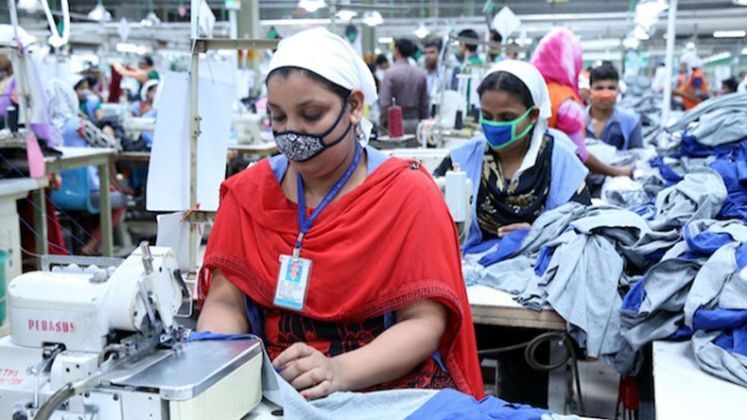
A recent program organised by the Centre for Policy Dialogue (CPD) and Christian Aid has highlighted the urgent need for a national minimum wage and a uniform labour law applicable to all workers, including those in Export Processing Zones (EPZs). The event, titled “Reforms in Workers’ Livelihood, Workplace Safety, and Rights Issues: An Agenda for the Interim Government,” took place yesterday at the CPD office in Dhaka.
Experts and members of a government-formed Labour Reform Commission emphasised that the rights of female workers need stronger protection and that steps must be taken to formalize the informal sector, which currently employs approximately 85 percent of Bangladesh’s 85 million workforce.
The Labour Reform Commission was established by the interim government on November 18 of last year to propose reforms aimed at enhancing labour rights and worker welfare, addressing various structural and operational challenges in the sector.
Syed Sultan Uddin Ahmed, head of the commission, expressed concern about facing intense pressure from deprived workers seeking change, a limited 90-day timeframe for recommendations, and a lack of reliable data on labour rights. He noted that local business communities, particularly small entrepreneurs, are also struggling to cope with operational challenges.
Ahmed highlighted the alarming prevalence of “modern-day slavery” in various sectors and the existence of bonded and enforced labour in the informal sector, where workers lack legal protection and social safety nets. He pointed out that many sectors do not provide essential rights such as maternity leave and job security.
The commission head stressed the importance of creating an accurate database of workers and argued that minimum protection and standard wages are crucial for a balanced society and economy. He indicated that these concerns would be incorporated into recommendations for the interim government.
Kamran T Rahman, president of the Metropolitan Chamber of Commerce and Industry (MCCI), addressed the issue of child labour, noting its elimination from the garment sector but its persistence in some informal sectors. He stated that the formal sector currently employs 10 million people, while 55 million are engaged in informal work.
Moazzem indicated that the introduction of a national minimum wage should be phased, as many entrepreneurs are not yet prepared for its implementation. Currently, 42 sectors have established a minimum wage structure, with plans to add four more soon, and over 140 sectors could also be considered for inclusion.
Tamim Ahmed proposed reforms in wage payment, implementation of wage structures, collective bargaining, social insurance, workplace safety, and industrial dispute resolution.
Farooq Ahmed, secretary general of the Bangladesh Employers’ Federation, acknowledged the existence of enforced labour in some informal sectors but disputed claims of bonded labour in the country.






